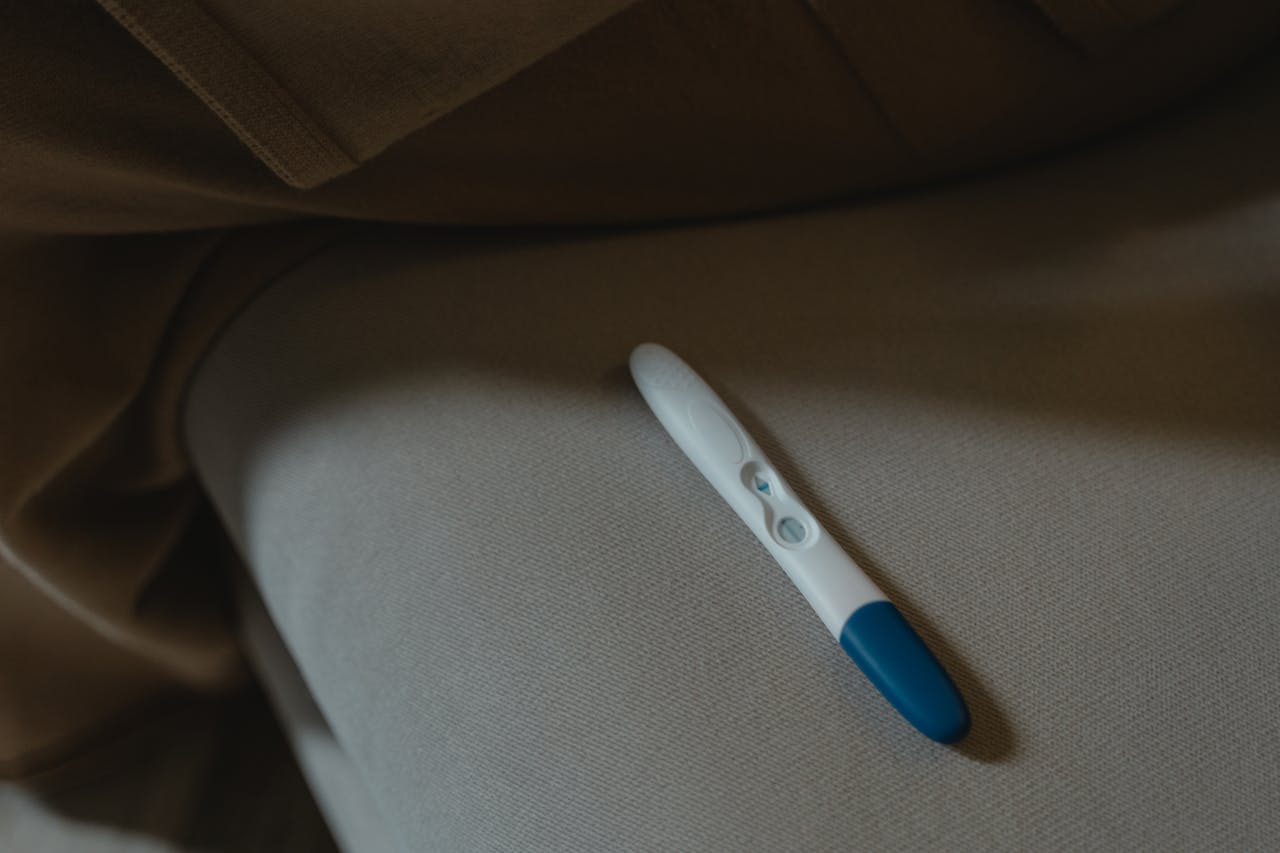7 days post ovulation (7 DPO): What’s happening in your body?

7 dPO, or 7 days post ovulation, is the time when implantation of the fertilized egg may have occurred, but it's still too early to get an accurate positive pregnancy test.
At 7 days post-ovulation or 7 DPO, you are halfway through your menstrual cycle. 7 DPO is usually too early to take a pregnancy test at home if you are planning a baby. This can be an emotional period, and it is normal to notice every new discomfort, sensation, or possible symptom as the days pass.
Due to hormonal changes that occur before the start of a period and during early pregnancy, it may be difficult to differentiate between symptoms of early pregnancy and premenstrual symptoms. The article discusses the various aspects of 7 DPO, including symptoms present if pregnant, when to take a home pregnancy test, symptoms if not pregnant, etc.
{{button}}
What Happens at 7 Days Post-Ovulation?
Ovulation occurs when the ovary releases a mature egg. The release of an egg indicates the beginning of the luteal phase of your menstrual cycle. The start of a menstrual period marks the end of the luteal phase, unless conception occurs.
You will not notice any symptoms of pregnancy during the very early days of the luteal phase, as pregnancy occurs only after the implantation of a fertilized egg into the uterine wall. Implantation of the fertilized egg typically occurs 6 to 12 days post-fertilization. This is the beginning of pregnancy.
The luteal phase is characterized by increased production of progesterone by the body. Progesterone helps in sustaining pregnancy during the initial stage. The progesterone levels peak at six to eight days post-ovulation, even if you are not pregnant.
7 DPO Symptoms if Pregnant
Due to an increased progesterone level at 7 days post-ovulation, you may experience various symptoms such as:
- Cramping
- Food cravings
- Mood swings
- Tenderness or pain in the breasts
- Fatigue or tiredness
- Headaches
- Nausea
- Bloating
7 DPO Cramping
One of the common 7 DPO symptoms is 7 DPO cramping. This may occur due to the implantation of the fertilized egg or a uterine response to hormonal changes at 7 DPO. Cramping due to implantation can easily be mistaken for premenstrual cramps.
Fatigue
During the week before your period, you may find yourself more tired than usual. However, hormonal fluctuations during early pregnancy may also cause fatigue as one of the 7 DPO symptoms if pregnant.
Breast Changes
You may develop tenderness and pain in your breasts 7 DPO, due to the hormonal changes that occur before periods. Breast pain is also one of the 7 DPO symptoms if pregnant. It occurs due to hormonal shifts and increased blood flow to the chest associated with conception. Your breasts may feel tender and swollen.
Food Cravings
The premenstrual hormonal changes can cause food cravings during the days leading up to the period. Since the estrogen hormone is known to suppress appetite, a premenstrual dip in this hormone may increase your appetite and food cravings 7 DPO.
Food cravings are also one of the common 7 DPO symptoms if pregnant. But it may be too early to specify the reason for food cravings at 7 DPO.
Mood Swings
In the days leading up to the period, it is normal to feel more sensitive, stressed, or irritable. This is a common feature of premenstrual syndrome (PMS) and is usually due to hormonal shifts.
But you may experience the symptom of mood swings during early pregnancy at 7 DPO, again due to hormonal fluctuations.
7 DPO Vaginal Discharge
Hormonal changes that occur throughout your menstrual cycle affect both the amount and type of vaginal discharge. At the time of ovulation, the vaginal discharge is usually slippery and clear (like raw egg white).
At 7 DPO, the vaginal discharge may appear sticky, thick, creamy, and more abundant. However, there may be individual differences in the exact characteristics of the vaginal discharge 7 days post-ovulation.
Nausea 7 DPO
While the usual morning sickness of pregnancy appears later, some women may develop symptoms of mild nausea 7 DPO.
Bloating
You may feel slightly bloated 7 days after conception. Bloating is also a symptom of PMS.
Headaches
The hormonal changes at 7 days after conception may trigger headaches in some women.
When to Take a Pregnancy Test?
If you are trying to conceive, the excitement of taking a pregnancy test at 7 DPO to confirm conception is unbeatable. But is it too early? Yes, in most cases, a 7 DPO pregnancy test will not confirm pregnancy, and a 7 DPO pregnancy test progression will be negative.
Why is a 7 DPO Pregnancy Test Unreliable?
A 7 DPO pregnancy test is unreliable due to the following reasons:
Timing of Implantation
Though implantation of the fertilized egg may occur 7 days post-ovulation, it usually happens later than that (typically between the 6th and 10th day post-ovulation). The test detects the levels of the pregnancy hormone (hCG) in your body. Without implantation, the body will not secrete identifiable levels of hCG.
hCG Levels
Even after implantation, the levels will take time to rise enough to become detectable in a home pregnancy test.
Sensitivity of the Test
Home pregnancy test kits cannot detect low hCG levels present at 7 days after conception.
What Should You Expect From a 7 DPO Pregnancy Test?
Negative
A pregnancy test at 7 DPO is usually negative as the levels of the pregnancy hormone are quite low. However, this does not mean that conception has not occurred. It simply implies that the hCG levels were not enough to be detected in a home pregnancy test.
Though rare, a 7 DPO positive pregnancy test may occur in some women as an exception. For more accurate results (up to 99%), wait at least until the day after your missed period.
7 DPO Symptoms Ending in BFP
BFP stands for ‘big fat positive’ and is a quite popular acronym in the fertility space. BFB indicates a positive pregnancy test. As already discussed, 7 DPO symptoms ending in BFB are a rare occurrence. To get accurate results on a pregnancy test, wait at least until the day after your missed period.
FAQs
Does 7 DPO cramping signal a definite conception?
Though cramping at 7 DPO may suggest possible implantation, it is not a definite indication of pregnancy. Cramping may occur due to normal hormonal changes during the menstrual cycle.
Is Nausea 7 DPO a common occurrence?
While nausea may occur 7 days after conception in some women, it is not a common finding. Nausea, referred to as ‘morning sickness,’ usually appears later (two weeks after implantation).
What kind of vaginal discharge at 7 DPO suggests pregnancy?
Vaginal discharge may differ widely from cycle to cycle and from person to person, so it is not a reliable sign of conception at 7 days post-ovulation. Changes in vaginal discharge may occur in some women as early as 7 DPO. However, there is no particular kind of discharge at 7 DPO to indicate pregnancy.
Is tiredness normal at 7 DPO?
Yes. Fatigue and tiredness are common during early pregnancy, even as early as 7 days after conception. However, the normal hormonal shifts of the menstrual cycle may also cause fatigue. Whatever the case may be, take extra rest if you feel fatigued.
Should I abstain from alcohol at 7 DPO?
It is a general recommendation to abstain from alcoholic beverages during the conception period if you are planning to get pregnant. Though a single alcoholic drink at 7 DPO may not have any adverse effect on implantation, many physicians advise against alcohol use. Remember, 7 DPO is the time when you are not sure about your pregnancy.
What does having no symptoms at 7 DPO imply?
At 7 DPO, implantation of the fertilized egg may have already happened. However, you may or may not notice any of the early pregnancy symptoms. Having no symptoms does not exclude pregnancy, just as experiencing them does not assure a pregnancy. The response to conception is different in every woman at 7 DPO.
Can stress adversely affect conception at 7 DPO?
Stress can affect fertility and general health. But no direct evidence exists to state that stress prevents or hinders implantation. Still, focus on relaxation and self-care measures to promote your health and well-being during the two-week waiting period. This is especially important if you are trying to get pregnant.
Conclusion
At 7 days post-ovulation, the body is working hard in preparation for the anticipated pregnancy. While early pregnancy symptoms may appear in some women at 7 DPO, some may not experience any symptoms. The latter does not indicate that you are not pregnant.
Remember that every woman’s journey is unique. There are no distinct 7 DPO symptoms that can positively guarantee conception. Some of you may experience early pregnancy symptoms of cramping, fatigue, mood swings, and vaginal discharge changes at 7 DPO, while some may not. Both scenarios are normal.
7 DPO is usually quite early to get a positive pregnancy test. It is best to wait until the day you miss your period before taking a pregnancy test.
Therefore, if you are trying to conceive, the best technique is to stay patient at this stage and take good care of yourself. Stay calm, practice relaxation techniques, get adequate rest, and stay away from alcohol.
{{pink-banner}}








.avif)
